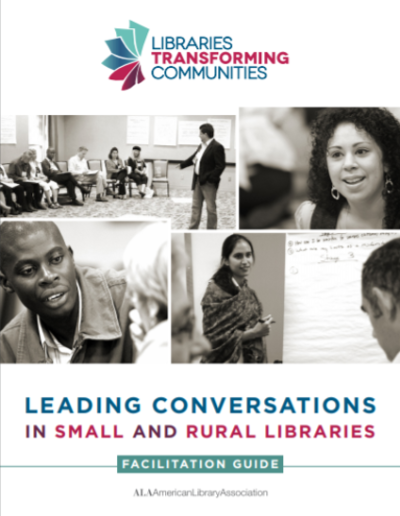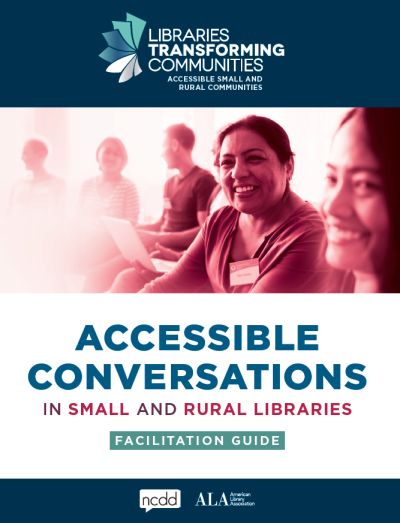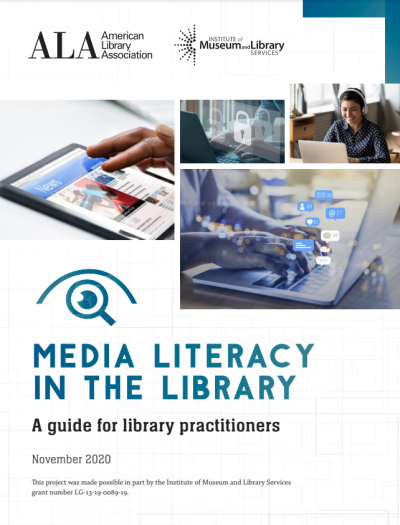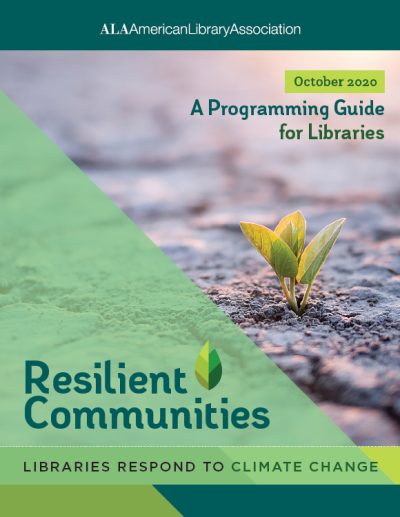Accessibility Guides
These guides are designed to help you begin the work of improving your library’s accessibility and inclusion practices for people with disabilities.
Conversation Facilitation Guides
These materials are designed to help you gain the skills you need to not only prepare for and lead discussions but also to overcome common challenges that arise when people gather to speak in groups. Note: the following guides are written with small and rural libraries in mind but can be used in any library type serving any community size.
Topics include the roles and responsibilities of a facilitator, how to ask the right questions, tips for keeping a conversation constructive, and best practices for defusing tension.
Leading Conversations in Small and Rural Libraries [PDF]

Accessible Conversations in Small and Rural Libraries [PDF]

Media Literacy and Digital Access Guides
There is a critical need for media literacy resources that can be readily used by libraries to help adult community members better assess online information. The following guides address media literacy in the library as well as how to help patrons build digital literacy and stay connected online.
Media Literacy in the Library [PDF]

Architecture of the internet programming guide [PDF]
Reading & Discussion Guides
The following guides lead library workers through best practices for reading and discussion groups.
The Great Stories Club Programming Guide for library workers walks through a variety of book club themes available as part of the Great Stories Club. The guide offers discussion questions and tips for planning and facilitating book clubs for teens.
For more than 30 years, the Let's Talk About It reading and book discussion program model has been used by hundreds of libraries, reaching more than 4 million people around the United States. The corresponding guide is flexible enough to be used with any of the existing Let’s Talk About It themes or with any style of reading and discussion program.










